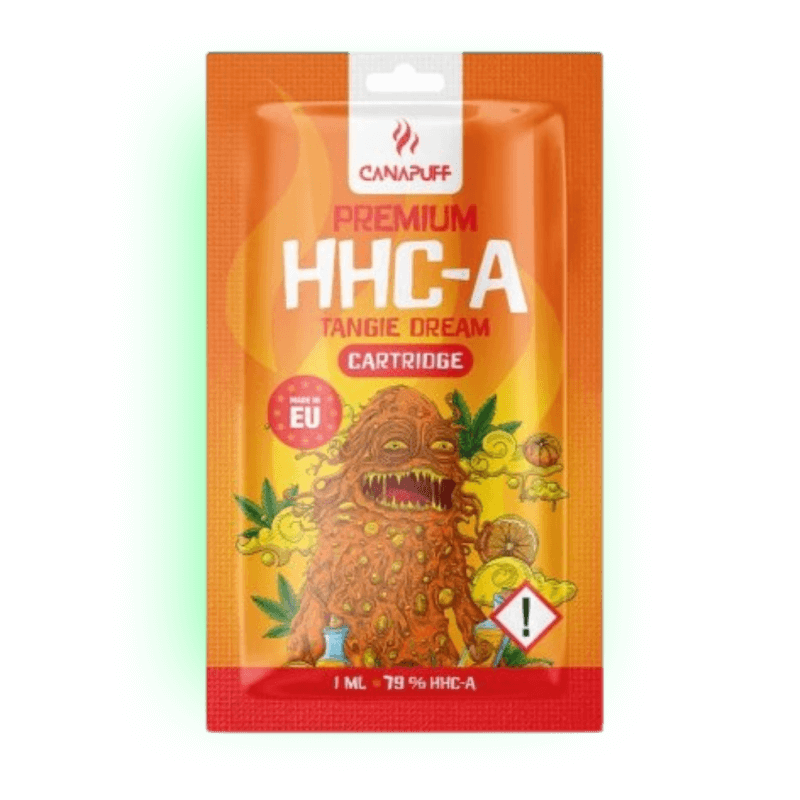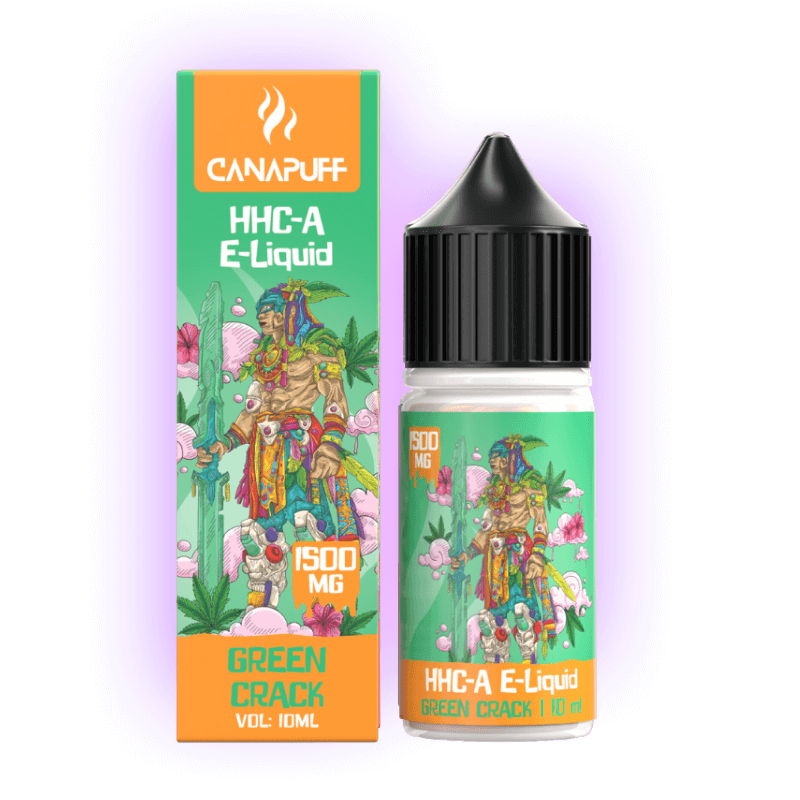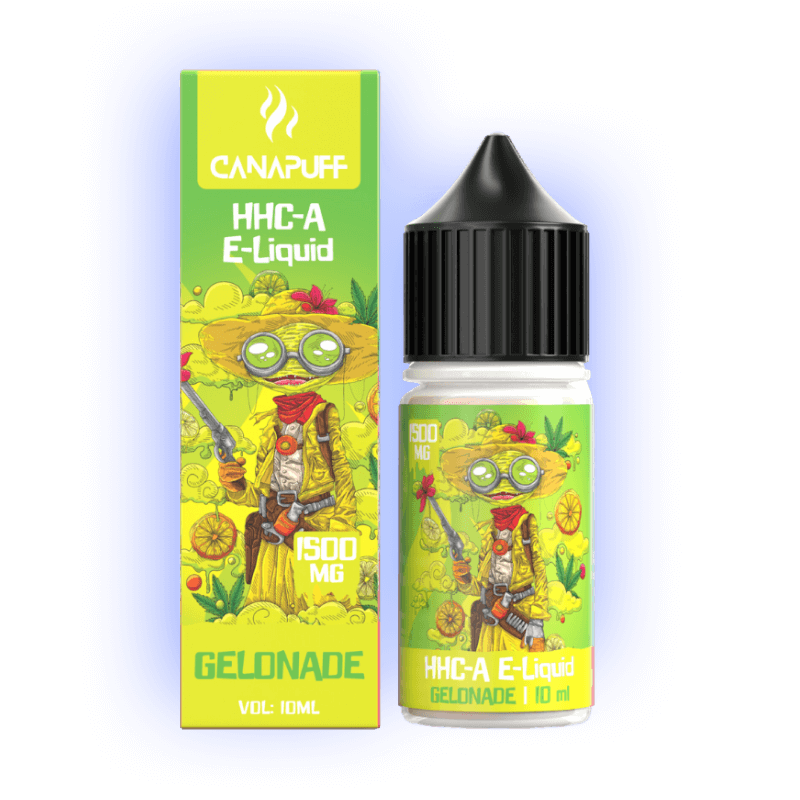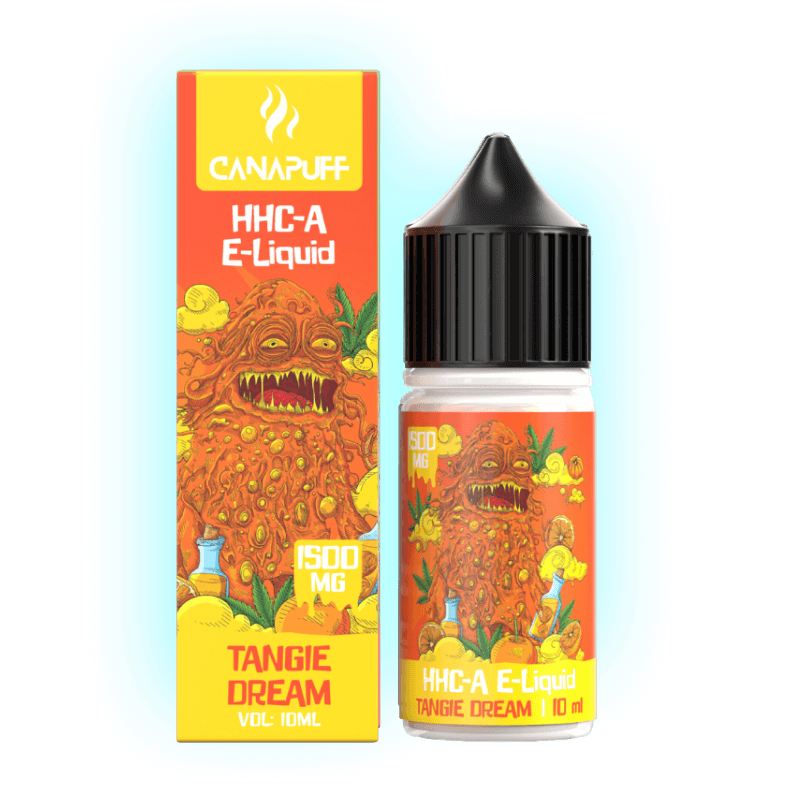What exactly is HHC-A?
HHC-A is a fascinating cannabinoid with a unique origin. Cannabinoids can be divided into two main categories: Endocannabinoids, which our bodies produce naturally, and phytocannabinoids, which can be derived from the cannabis plant or produced synthetically. While the most well-known phytocannabinoids are THC and CBD, HHC-A is also gaining increasing recognition.
These cannabinoids exert their effects through the endocannabinoid system, a complex network of receptors present throughout the body, including the brain. HHC-A is a very new cannabinoid and not much is known about it. Much of the information about it is based on personal experience and there is no guarantee that the effects, side effects and dangers described are always true. We want to keep you well informed so that you do not fall for false or misleading statements.

HHC-A is a unique cannabinoid that differs significantly from others. It is not one of the endocannabinoids that our bodies naturally produce, nor is it one of the phytocannabinoids that come from the cannabis plant. Instead, HHC-A is produced semi-synthetically, which gives it a special chemical structure. This unique structure could give HHC-A specific properties that set it apart from other cannabinoids. The mode of action and potential effects of HHC-A are still the subject of intensive research.
Although initial studies are promising, more research is needed to understand the exact effects on the human body. If you are thinking of using products containing HHC-A, it is advisable to consult with a medical professional beforehand and look for high-quality products from trusted suppliers.
What are the advantages
HHC-A is a cannabinoid found in cannabis products and offers a variety of benefits. It interacts with the endocannabinoid system in the body and has a similar effect to CBD (cannabidiol).
- It can inhibit inflammation
- Relieve pain
- Contribute to overall health by reducing cell damage caused by free radicals
- Help you fall asleep
- Have a muscle relaxing effect

One of the great benefits of HHC-A is its antioxidant effect. It helps to reduce cell damage caused by free radicals and can therefore help to prevent disease. In addition, it is considered an anti-inflammatory agent and can provide relief from inflammatory conditions such as arthritis.

Is HHC-A detectable?
There are currently no specific drug tests for HHC-A or its degradation products. However, it cannot be ruled out that metabolization produces degradation products similar to THC, which can be detected by certain tests.
It is therefore not advisable to trust that it is undetectable, especially when it comes to your driver's license.
How does HHC-A work?
The consistency of the study results with the perception of users is difficult to answer, as the effect on CB1 receptors is subjective. Some may feel little effect, while others may experience psychotic states.
Research suggests that HHC-A is about 100 times more potent at CB1 receptors than CBD, as shown in a study from 2006 and one from 2017. A slightly psychoactive effect is therefore likely. Nevertheless, a CBD-like effect predominates, which makes sense as HHC-A is a hydrogenated form of CBD and has structural similarities.

Order high-quality HHC-A and enjoy the unique taste and feeling experience!
- Fast shipping from Germany ✓
- Cash purchase, credit card or prepayment ✓
- Made in the EU ✓
- Discreet & legally secure purchase ✓
- Neutral packaging ✓
- Free shipping from 59 € ✓
- +500 articles ✓
- Many reviews on Trustpilot ✓
- More than 25,000 satisfied customers ✓
FAQs
It's not always easy to find high-quality HHC-A products these days, as the market is flooded with offers. However, you've come to the right place! Our wide range of first-class HHC-A products is sure to meet your needs. If you're undecided, take a look at our customised sets. We want to make your decision easier with our trial sets and packages. Check out the quality of our products for yourself and enjoy our first-class service!
HHC-A is produced through a chemical process called catalytic hydrogenation. In this process, cannabidiol (CBD) is treated with hydrogen in the presence of a catalyst. This process changes the chemical structure of CBD and transforms it into HHC-A. This process takes place in a laboratory and requires precise control of the conditions to ensure that the end product is pure and safe.</p
HHC-A interacts with the body's endocannabinoid system, a complex network of receptors present throughout the body, including the brain. In particular, HHC-A binds to the CB1 and CB2 receptors, which are responsible for various physiological processes.
- CB1 receptors: These are mainly located in the central nervous system and are involved in the regulation of pain, mood, appetite and memory. The binding of HHC-A to these receptors can lead to a change in these functions, which is often described as psychoactive effects.
- CB2 receptors: These are mainly found in the immune system and play a role in the inflammatory reaction and immune response. The interaction of HHC-A with CB2 receptors can have anti-inflammatory and immunomodulatory effects.
In summary, by binding to these receptors, HHC-A can trigger various effects in the body, including pain relief, mood changes and anti-inflammation. Since HHC-A has a stronger affinity for these receptors than some other cannabinoids, the effects can potentially be more intense.</p
Yes, HHC-A is an artificial cannabinoid. It is produced synthetically by converting cannabidiol (CBD) through a chemical process called catalytic hydrogenation. This process changes the chemical structure of CBD and produces HHC-A, which does not occur naturally in the cannabis plant. Therefore, HHC-A is classified as an artificial or semi-synthetic cannabinoid.</p
































